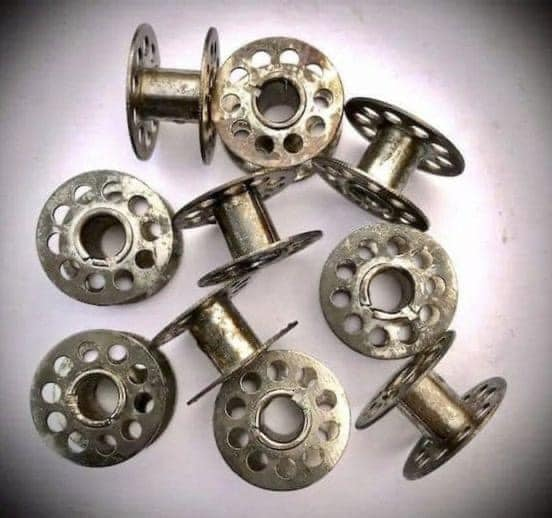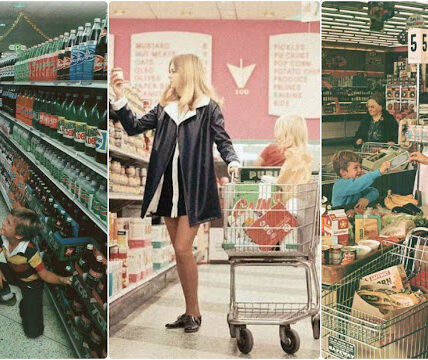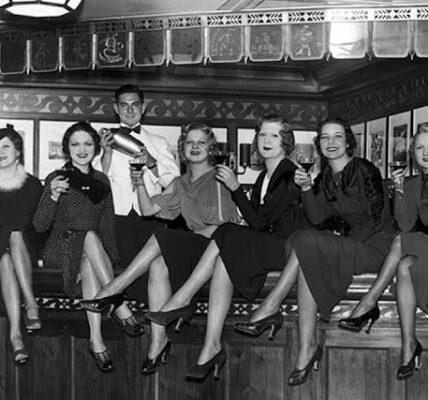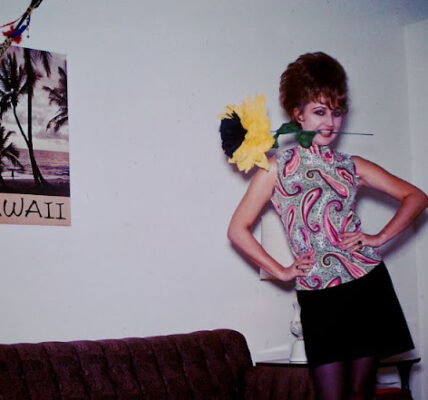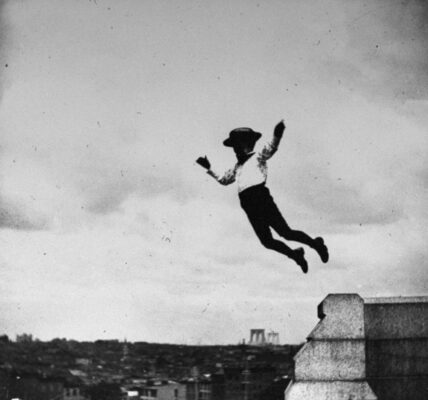
Looking at this old dentist chair takes me back to a time when visiting the dentist was truly nerve-wracking. This vintage setup, with its bulky, intimidating machinery and cold, clinical metal arms, brings up memories of sterile rooms with the faint smell of antiseptics. The oversized lamp hanging overhead seems almost menacing, ready to spotlight every inch of one’s mouth. I remember sitting in a chair like this as a kid, clutching the armrests while waiting for the uncomfortable hum of the drill to start. Every sound echoed, heightening the anxiety and making the experience feel like a scene from an old horror movie. The equipment itself looked worn out and rough, adding to the fear of pain, as if every component was designed to be as discomforting as possible. Seeing this image stirs up that deep, instinctive dread of dental visits from the past—an experience that many of us are thankful has been improved with modern, less intimidating technology.

Seeing this image of a hopscotch grid drawn with chalk on the pavement brings back fond memories of simpler times spent on the schoolyard. The game was a staple of my childhood—no fancy equipment, just a piece of chalk and a small stone or bottle cap. We’d gather during recess, eagerly drawing the numbered boxes and deciding who would go first. The goal was simple, yet each turn felt like an adventure as we balanced on one foot, trying not to touch the lines. Laughter filled the air as we playfully competed, sometimes losing track of time in the joy of hopping across the numbers. For a moment, all the worries of the school day melted away. It was just us, the chalk, and the thrill of the game. Looking at this image, I feel a nostalgic warmth, remembering a time when entertainment came from creativity and camaraderie rather than screens. Hopscotch wasn’t just a game; it was a way of connecting, building friendships, and savoring the joys of being young and carefree.

Seeing these miniature game pieces—revolver, rope, knife, and lead pipe—instantly reminds me of countless hours spent playing Clue. The game was a classic fixture for family game nights and always stirred up excitement. Each player assumed the role of a different character, exploring the mansion, trying to deduce who committed the murder, in which room, and with what weapon. I remember holding my cards close, strategizing carefully to avoid revealing too much to the other players. The thrill of narrowing down the possibilities, making secret notes, and finally accusing someone with confidence created such suspense! The tension would build as everyone waited to see if the accusation was correct. It was a game of logic and psychology, but most of all, it was fun. The small metal tokens themselves felt like a key to a world of mystery and intrigue, a doorway into an elaborate whodunit. Looking at this image now, I feel a nostalgic longing for those evenings, huddled around the board, immersed in the thrill of solving a mystery together.

Seeing this image brings a flood of nostalgia. The tray clipped onto the car door, with the frosty A&W root beer mugs, a napkin dispenser, and a little red basket, transports me back to the days of drive-in diners. It was a time when car culture thrived, and going out for a simple burger and root beer float was a special outing. Pulling up to the diner, switching off the engine, and waiting for a friendly carhop to deliver your meal was part of the experience. The clinking of ice in those thick glass mugs and the fizz of freshly poured root beer had a charm that today’s fast-food places can’t quite capture.
Drive-in diners were more than just places to eat; they were a social hub, where friends and families gathered, and teens showed off their cars. It was a time of innocence, simplicity, and togetherness, qualities that seem hard to come by in today’s fast-paced world. For many, these memories represent not just a meal, but an entire era—one that reminds us of the joys of slowing down and enjoying the moment.

These beautiful glass ornaments bring back memories of old-fashioned Christmases, where decorating the tree was a magical family tradition. Each ornament, with its vivid colors and intricate patterns, reminds me of the care and excitement that went into opening the ornament box each December. The fragile, shimmering decorations would be carefully unpacked, one by one, revealing tiny hand-painted details and sparkling reflective surfaces that glowed in the lights of the Christmas tree. These ornaments were often family heirlooms, passed down from generation to generation, carrying with them memories of countless holiday seasons.
I remember the thrill of holding them up to the light, watching as they reflected shades of gold, red, green, and blue across the room. These decorations didn’t just beautify the tree; they created an atmosphere, transforming the living room into a place of warmth and wonder. For me, they symbolize the joy of family gatherings, holiday music, and the simple pleasure of being together. Every time I see ornaments like these, I’m reminded of those cherished holiday traditions and the timeless magic of Christmas.

This vintage stove from 1951 takes me back to my grandmother’s kitchen, a place filled with warmth, delicious aromas, and the sounds of family gatherings. The sturdy, elegant design with its chrome handles and multiple compartments feels like a piece of history, built to last through generations. Back then, stoves were more than just appliances—they were central to the home, where meals were prepared from scratch, and families gathered around to share stories.
I remember watching my grandmother effortlessly cook large family dinners on a stove just like this, with pots simmering on the burners and something always baking in the oven. The dials and knobs, with their solid feel, remind me of how cooking felt like a more hands-on, intentional process. Even the sight of an old kettle whistling on the burner brings back memories of warm cups of tea served with homemade cookies.
This stove is a symbol of an era when things were built with care, meant to be part of a family’s life for decades. It’s hard to decide whether to keep or sell something like this, as it’s not just a stove but a treasured reminder of family heritage and the simple joys of cooking together.
